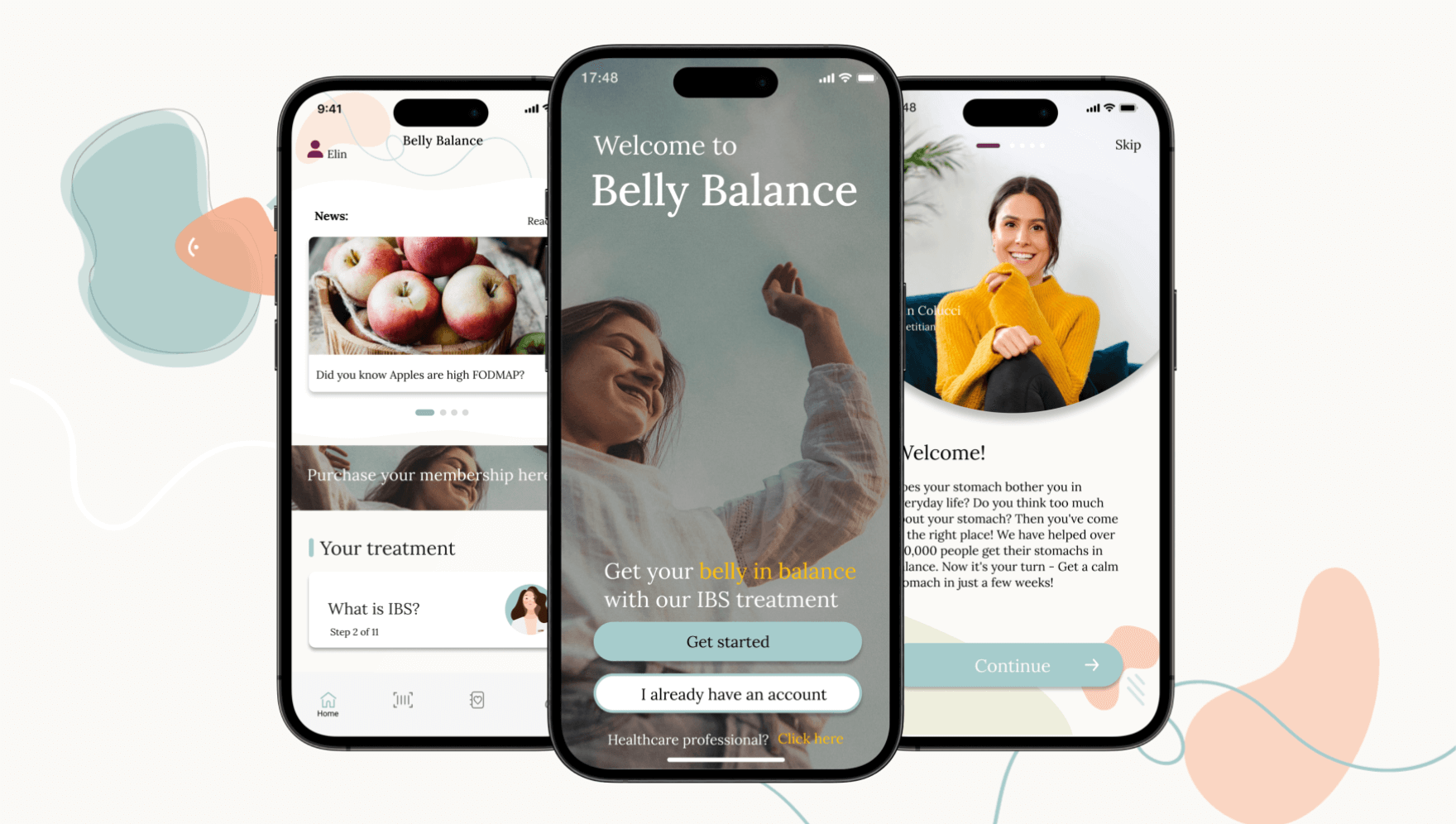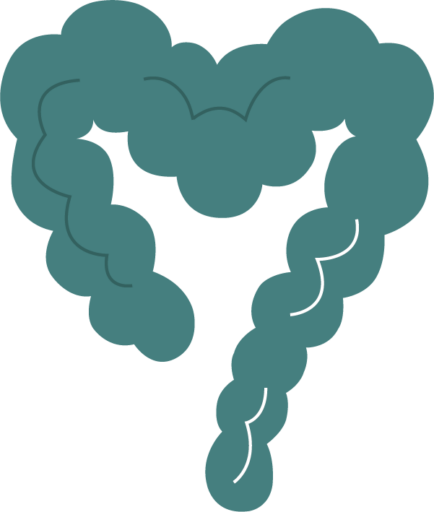
Abdominal pain
Abdominal pain is a symptom that many people experience, but for those with IBS, the pain can be recurring and sometimes challenging to manage. Pain is a component considered to always be present in the diagnosis of IBS. However, not everyone with IBS experiences abdominal pain; many instead feel a kind of discomfort in the gut.
Different types of IBS stomach pain
Pain can be defined in many ways. It can be a dull ache or a stinging sensation, cramps, or sharp jabs. The pain can also be in different areas of the gut. The brain isn’t great at interpreting information from the gut, meaning it can feel like the pain is in one place when, in reality, it’s elsewhere.
It’s common to experience pain on the right or left side under the ribs. The colon makes a bend there, and gas can easily get trapped, causing pain when the colon expands.
Measuring importance
By using a so-called VAS scale, one can estimate pain from 0-10. This way, you can see how pain changes over time and learn more about when the pain occurs. Perhaps it’s a bit better in the morning and then worsens during the day. Or it gets worse if you’re tense, nervous, or stressed. To gain control of the situation, it’s essential to keep a symptom diary, logging symptoms every day.
Abdominal pain in children
Children with diffuse abdominal pain should always undergo evaluation by a doctor. First excluding other diseases and then receiving a diagnosis is crucial when it comes to children.
Causes of abdominal pain in IBS
- Muscle contractions in the intestine: IBS can cause stronger and longer muscle contractions in the intestine, resulting in gas, bloating, and abdominal pain.
- FODMAPs: These are certain types of carbohydrates that can be challenging to break down and absorb in the small intestine. Excessive consumption can lead to painful gas and swelling.
- Infections: Previous gastrointestinal infections can lead to IBS, known as PI-IBS, resulting in recurring abdominal pain.
- Sensitive intestine: Many with IBS report increased sensitivity in the intestine, causing pain even with normal gas production.
Possible treatments
- The low FODMAP diet: By reducing or eliminating high-FODMAP foods, many experience a noticeable reduction in pain and bloating.
- Antispasmodic medications: These can help control muscle spasms in the intestine, relieving pain.
- Fibre intake: Although managing certain fibres with IBS can be challenging, a balanced intake of the right type of fibre can help with constipation and thereby reduce pain.
- Probiotics: Some strains of probiotics have been shown to be effective in reducing pain in IBS patients.
- Stress management: Since stress can be a triggering factor for IBS attacks, techniques like meditation, yoga, and breathing exercises can help reduce pain.
IBS pain can be overwhelming, but by understanding the underlying causes and exploring different treatment options, you can find relief. Typically, a combination of the low FODMAP diet and stress management is the most effective method.
In the Belly Balance app, you’ll find a food and symptom diary, meal plans, recipes, barcode scanner, FODMAP lists, and much more to help you manage your IBS. Following the low FODMAP diet structure (first eliminating and then correctly reintroducing), you can learn to avoid foods that cause symptoms and retain those that are well-tolerated.
Sofia Antonsson
Reg. Dietitian, Belly Balance
Take control of your IBS today!
Ready to reclaim your life from IBS? Our app provides the tools and guidance you need to manage IBS effectively.
Download the AppRead more about

IBS - What is it?
Bloated , constipated or having a gassy stomach? IBS or Irritable Bowel Syndrome is a functional gastrointestinal disorder, meaning no physical issues can be found in the stomach or intestines; they just don’t function quite as they should.

How the app works
Download the app and become part of our community. We assist you in achieving a calm and happy stomach through treatment and tools available directly in the app.

About FODMAP
By learning which foods upset your stomach, you can make conscious choices and get quick symptom relief. With the low FODMAP diet, you receive structured assistance in understanding which foods your body tolerates better than others. No more guessing and pondering – you get the answer straight away!

